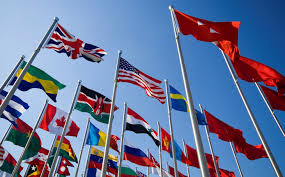
记忆方法
将“nationalism”分解为“na-tional-ism”。首先,记住“national”意味着与国家或民族有关。然后,将“-ism”后缀视为一种行为或状态。所以,“nationalism”可以记忆为“关于国家或民族的信念或主义”,即“民族主义”。这种方法通过将单词分解为易于记忆的组成部分来帮助记忆。
以上内容由AI生成, 仅供参考和借鉴
中文词源
nationalism 国家主义,民族优越感
来自national,国家的,民族的。
英语词源
- nationalism (n.)
- 1844, "devotion to one's country;" see nationalist + -ism; in some usages from French nationalisme. Earlier it was used in a theological sense of "the doctrine of divine election of nations" (1836). Later it was used in a sense of "doctrine advocating nationalization of a country's industry" (1892).
权威例句
- 1. I think nationalism is just a code word for racism.
- 我认为民族主义不过是种族主义的代名词。
- 2. Xenophobic nationalism is on the rise in some West European countries.
- 西欧一些国家的仇外民族主义有所抬头。
- 3. I think we'd better leave the subject of Nationalism.
- 我看我们最好还是搁下民族主义这个话题吧。
- 4. This kind of fierce nationalism is a powerful and potentially volatile force.
- 这种强烈的民族主义情绪是一股强大的、可能会突然爆发的潜在力量。
- 5. French-Canadian nationalism was fuelled in the 1960s.
- 20世纪60年代加拿大法语区的民族主义情绪高涨。